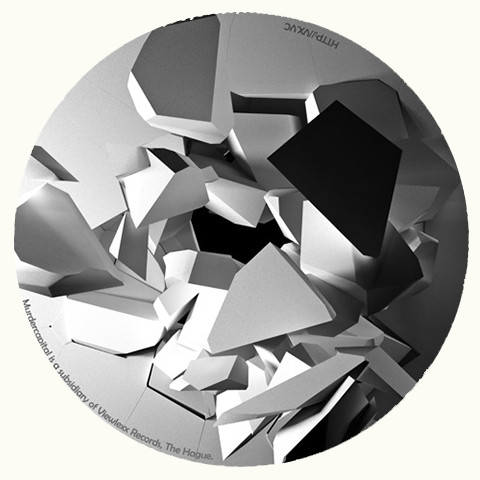Five years on from his first release, we still don’t know very much about Gesloten Cirkel. He’s from Russia and he makes a raw, often ravey, always interesting, blend of old-sounding electro and distinctly modern techno. His first release, a self-titled EP, came on Dutch mainstay I-F’s long-dormant Murder Capital label and he returns there with Submit X, his first full-length. The album opens with a track called ‘Zombiemachine Acid’ and it’s hard to imagine a more concise and accurate description of the music that follows.
The structure of the album’s first half gives it a strange sense of balance. ‘Zombiemachine Acid’ and ‘Stakan’ are matched by stripped and twisted versions of themselves, the former getting a short reprise while the latter’s coldest-of-the-cold wave is preceded by a blurry ambient mix, all vocoder and reverb. This mirroring effect almost stalls the album before it can get going, giving it a weird, jerking sense of uncertain momentum.
One of the distinctive qualities in Gesloten Cirkel productions to date has been an ability to find hooks in the strangest places. On his remix of Conforce’s ’24’, the weight and texture of the over-the-top kick drum is as intoxicating and memorable as the more traditional vocal snippet. Submit X doesn’t disappoint in this regard. On the title track, a vocal sample again takes the lead, but it’s the way the huge reverb on the drums is smashed into a compressor that gives the track its character; heavy yet somewhat rootless, and ultimately hollow. The way the lead synth flickers between straight melody and swung arpeggios on the nearly 8-bit ‘Chatters’ is an object lesson in how to do a lot with very little, balancing ear-pleasing catchiness with raw machine talk in the process. Time and time again, it’s this ear for melody that keeps Submit X sounding original and saves it from sliding backwards towards mere nostalgia or pastiche.
It’s only towards the end that Submit X begins to lose its own thread and ‘Arrested Development’ is the first noticeable drop in quality. It replays the same smashed reverb trick as earlier but its bass line is nondescript and the expansive lead line lacks any sense of direction or inspiration. The final few tracks are fine in their own right but don’t feel a piece with what has come before. The lurching, irresistible machine funk of the earlier tracks is replaced by something altogether less distinctive. The albums ends with the sort of industrial techno that will undoubtedly sound good played out, but which is entirely out of place on an album that, in its many brilliant moments, blends the downright weird with the irrepressibly fun.


